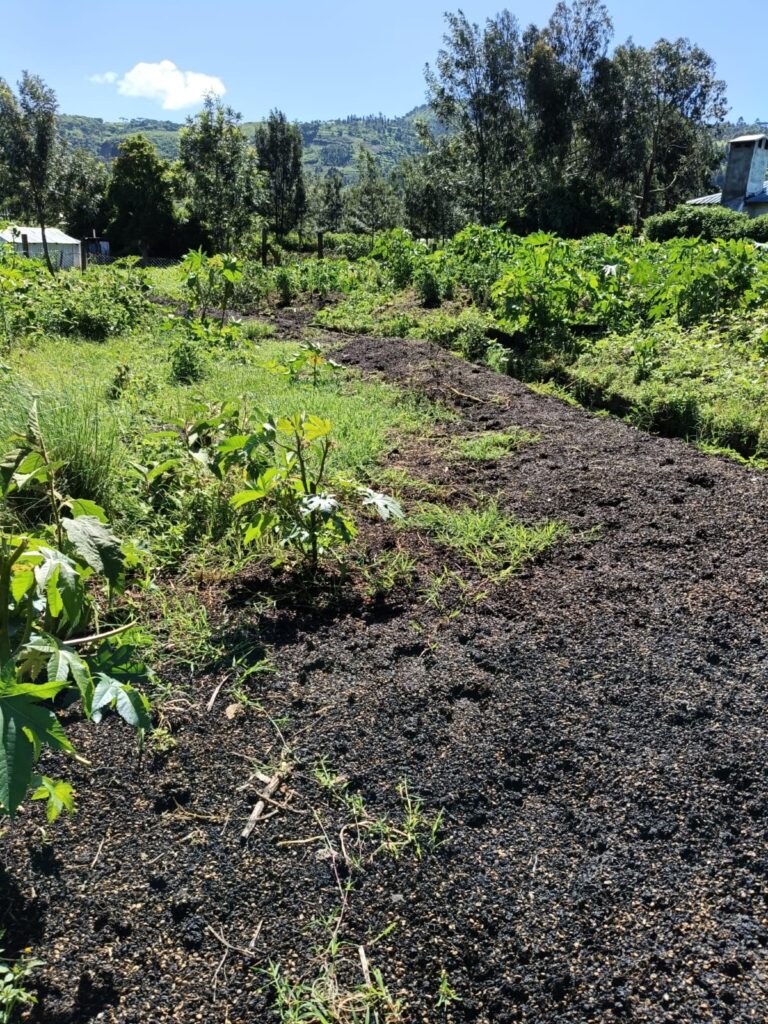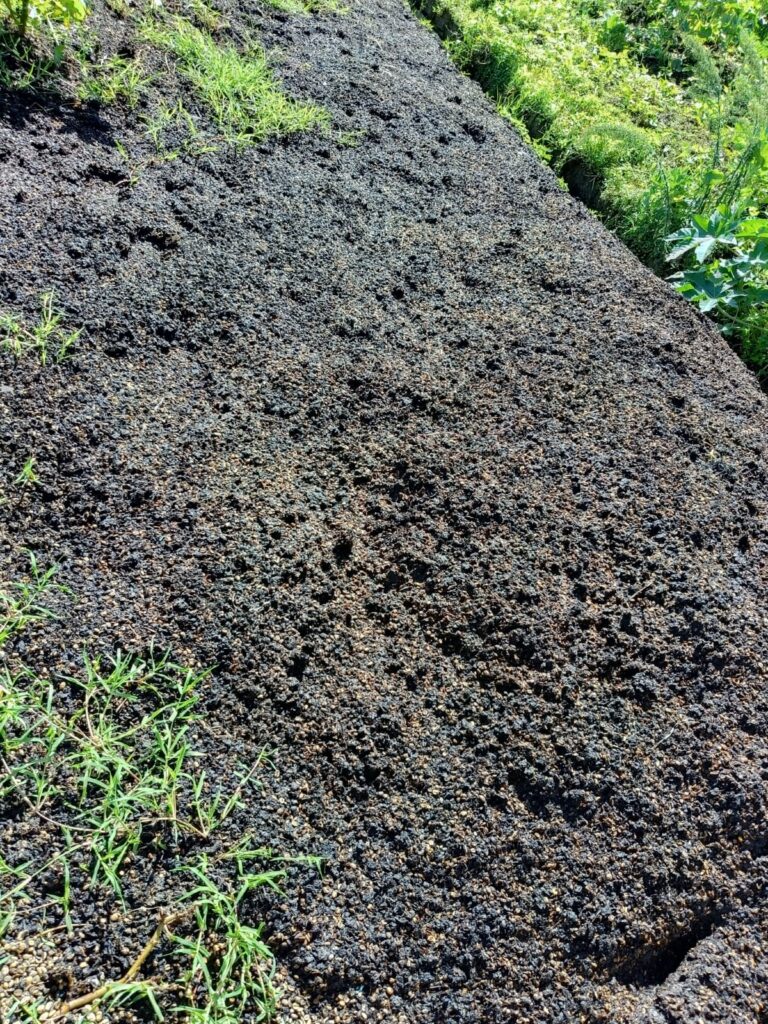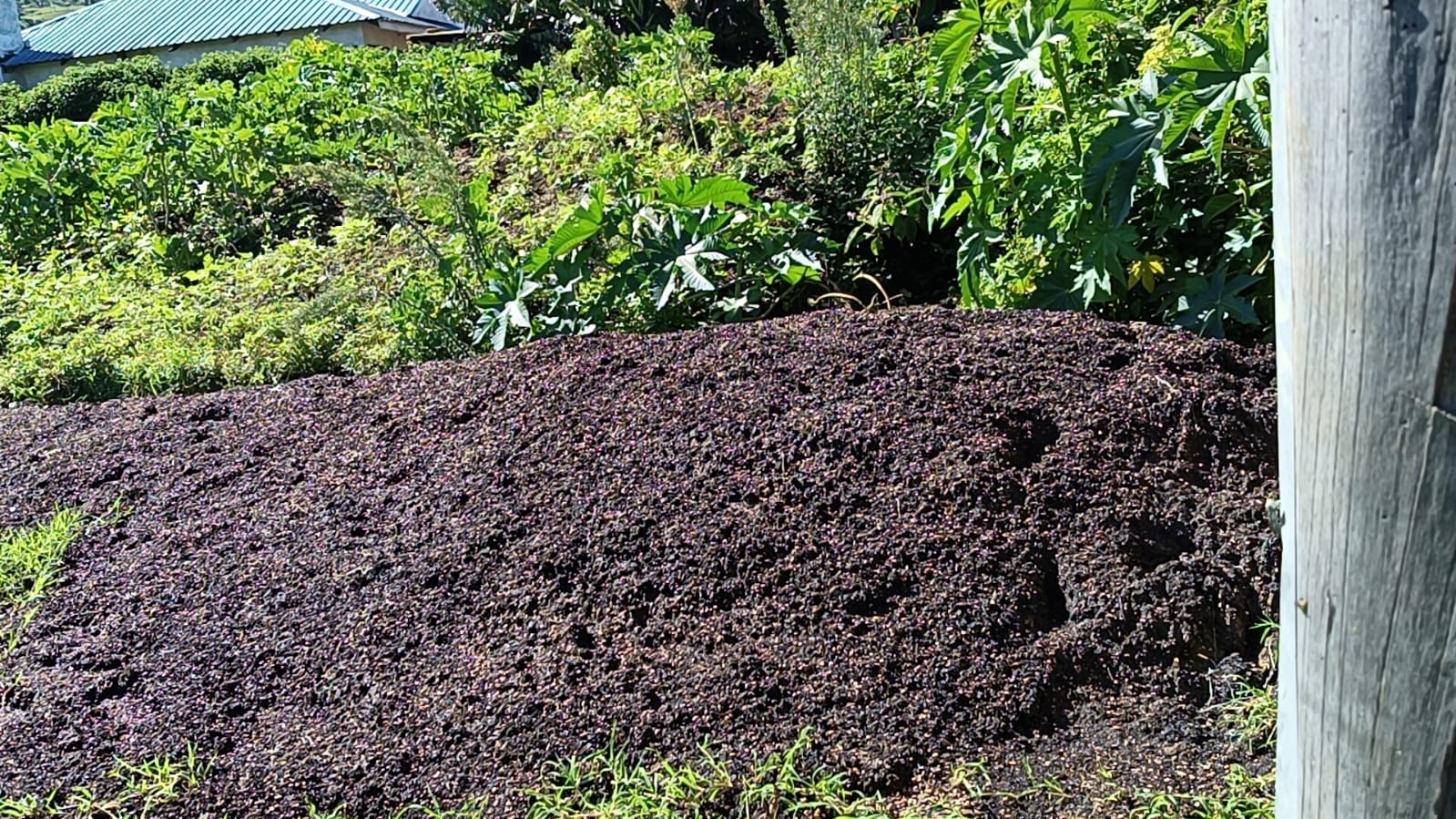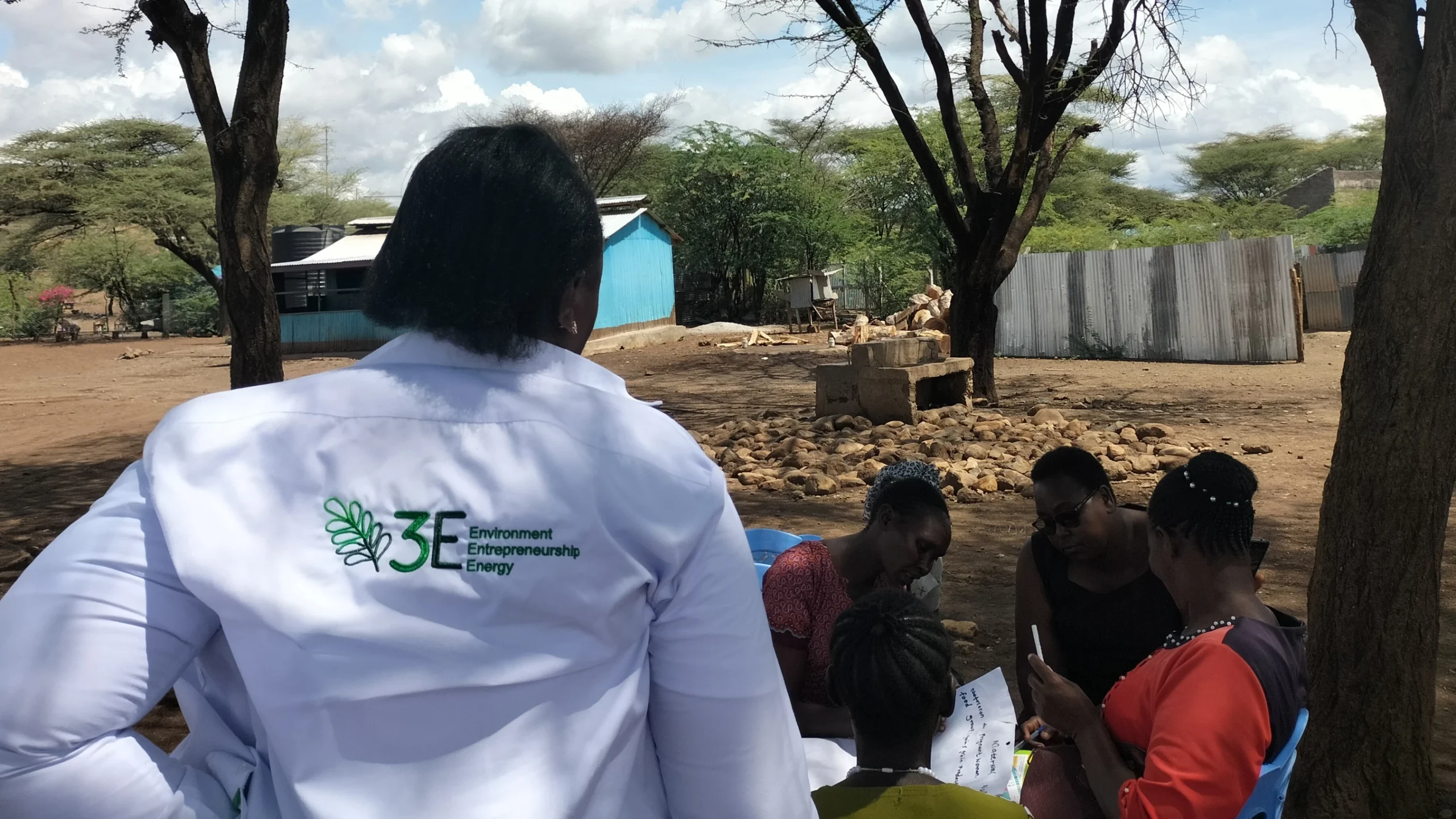Every year, Kenya discards over 10,000 tons of coffee husks—the shells stripped from coffee beans during processing. For generations, coffee farming has been a cornerstone of Kenya’s economy, providing livelihoods for many. Yet behind the aroma of each freshly brewed cup lies a largely overlooked byproduct: coffee husks. Traditionally discarded or burned, these husks not only contribute to environmental pollution but also represent a missed opportunity for sustainable development. 3Es, through its Coffee Programme, seeks to change that narrative by exploring innovative ways to convert this waste stream into a valuable resource—benefiting the environment, the economy, and local communities.
Farmers often grapple with piles of husks that accumulate after coffee processing. Once dismissed as mere farm waste, these husks have caught the attention of 3E. Recognizing both the environmental burden and the economic potential, 3E has prioritized solutions that turn coffee husks into a driver of sustainable growth.
Harnessing the Power of Coffee Husks
- Organic Fertilizer
Coffee husks are rich in organic matter and nutrients, making them ideal for compost. When used as organic fertilizer, these composted husks help enrich soil, boost crop yields, and reduce reliance on synthetic fertilizers. - Renewable Energy
Instead of contributing to air pollution, coffee husks can be processed into biogas or briquettes—cleaner, more efficient alternatives to firewood or charcoal. This shift reduces deforestation, lowers household energy costs, and improves air quality in local communities. - Animal Feed and Silage
In some cases, coffee husks can also be incorporated into animal feed or silage, reducing waste and creating a more circular farming system.
3E’s Innovative Approaches
- Coffee Husk Briquettes
Clean-burning briquettes offer an alternative to traditional firewood. By adopting briquettes, communities can help preserve forests, mitigate carbon emissions, and save on cooking fuel costs. - Biochar Production
Biochar, derived from coffee husks, is a highly stable soil amendment that locks carbon in the ground, boosts soil fertility, and improves water retention. This holistic approach not only enhances agricultural productivity but also contributes to climate change mitigation.
Embracing coffee husk utilization could spark local economic growth. Producing biochar or briquettes creates new job opportunities, particularly for women and youth. Additionally, by selling value-added coffee husk products, farmers and cooperatives can diversify their income streams. Over time, such ventures foster greater financial resilience and stability within farming communities.
While the potential is promising, fully harnessing coffee husks requires a combination of efforts:
- Continued Research and Development: Ongoing innovation is crucial for optimizing processing techniques, discovering efficient transformation methods, and addressing any environmental concerns.
- Community Training: Equipping local farmers, women, and youth with practical skills ensures they can effectively adopt and scale coffee husk utilization practices.
- Raising Awareness: Communication and outreach help communities recognize the environmental and economic advantages of reusing coffee husks, thereby encouraging wider participation and support.
By reshaping how coffee husks are viewed and utilized, we are championing a new era of sustainable coffee production. Turning waste into resources not only helps preserve the environment but also empowers communities to thrive economically.
“Waste is only waste if we waste it.”
Join us in transforming linear industries into circular ecosystems. Support 3E, learn more about our ongoing efforts, and share our story.



